When I posted the question set out above on LinkedIn, I included the following introduction.
Former White House Domestic Policy Analyst Dinesh D'Souza has written a book picked as the main selection of a major book club. (See over 90 positive reviews at Amazon: http://www.amazon.com/Whats-So-Great-About-Christianity/dp/1596985178/ref=pd_bbs_1?ie=UTF8&s=books&qid=1204071889&sr=8-1)
Among other things, the author writes about: The Future of Christianity; Christianity and the West; Christianity and Science; The Argument from Design; Christianity and Philosophy; Christianity and Suffering; Christianity and Morality; Christianity and You.
Recognizing that I am going against conventional wisdom in beginning such a discussion, nevertheless my hope is to promote a form of debate on LinkedIn that will allow participants to express their responses in a most compelling way to show how change management may be enhanced by open-minded discussion called disputation.
So here is the format I plan to use in a series of upcoming questions and would encourage others who like this format to use it:
1. LEADER'S TOPIC: [In this case, Religion.]
2. STRATEGIC ISSUE about the Topic: [In this case, "Is Christianity a believably better, indeed great, way to live?"]
3. RESPONSES: [In this case, your affirmative and negative answers to the issue posed about the Topic as provided by participants in this Q/A.]
4. WISDOM LINKS: [Links that all may provide to enhance future discussion.]
5. PARTICIPANT OBJECTIONS: [Responses organized by questioner into areas of concerns about value, mission, purpose, vision, leadership, strategy, client focus, wisdom, co-worker focus, process management, and results.]
6. QUESTIONER'S REPLY: [Upon closing the question, the person initiating the question, processes the responses and clarifies his or her own take on the answer.]
7. RESULTS: [The questioner replies to the points made by the participants.]
Thanks for participating.
About twelve participants responded.
Then the question was flagged as "inappropriate content" and hidden from public view.
What do you think about the disputation idea; the topic in question; or the way LinkedIn dealt with this?
I have now posted a new question: "DISPUTATION: Is disputation the best way to focus participants in change management? (Disputation)". Hopefully this one won't get flagged. We'll see.
for people who want to make better decisions
MOVIES FOR DECISION-MAKERS
Below are the cover images of movies for decision-makers, with clues to better decision-making.
Romero: the significant decision
"I know men and I tell you that Jesus Christ is no mere man. Between Him and every other person in the world there is no possible term of comparison. Alexander, Caesar, Charlemagne, and I have founded empires. But on what did we rest the creation of our genius? Upon force. Jesus Christ founded His empire upon love; and at this hour millions of men would die for Him."
--Napoleon
Decision-making: like climbing ...

a spiral staircase...one step at a time.
John Darrouzet
Special Counsel for Decision-Makers
Links
Followers
Subscribe To
********************* Advertising Disclaimer *********************
NOTE WELL:
Allowing the placement of the ads set out below should not be interpreted to constitute an endorsement or recommendation in any way by Special Counsel for Decision-Making or John Darrouzet of the content or programs referred to therein by the advertisers.
*****************************************************************************************************************************************
Allowing the placement of the ads set out below should not be interpreted to constitute an endorsement or recommendation in any way by Special Counsel for Decision-Making or John Darrouzet of the content or programs referred to therein by the advertisers.
*****************************************************************************************************************************************
*************************** Legal Notice **************************
Decision-Maker's Path (tm) trademark by, and blog content copyright © 2008, John Darrouzet. All rights reserved.
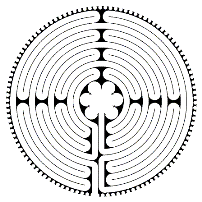







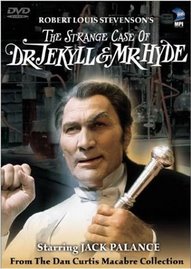





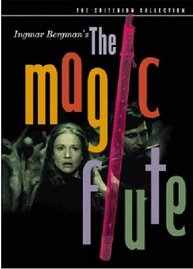





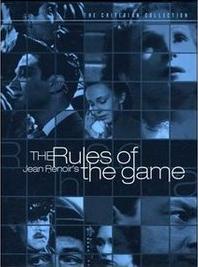

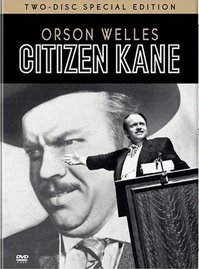







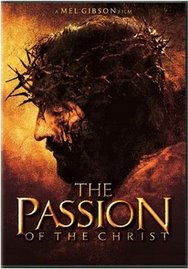





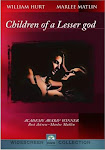
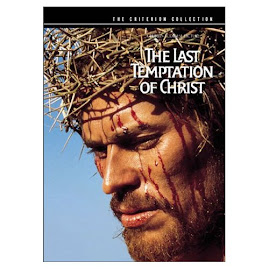
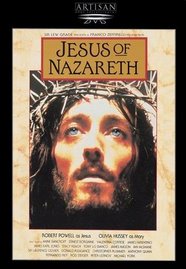










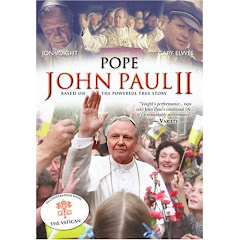
6 comments:
John,
I have once again decided to emerge from my silent observation and answer yet another incredibly viable question. Is Christianity a better way to live? This strikes a chord within me that few other questions do and the controversy has once again flung itself into the national spotlight. In order for the audience to understand my answer they must first understand me. Though I would say that is the case with anyone.
I am the product of two loving parents who raise my sister and I in the church. My father was a Deacon my mother was a corporate figure in the financial community. We were leaders in the community and I was no exception. About the time I learned about evolution was the time I began to delve into my own personal religious quest. Perhaps it was a lack of faith or perhaps it was the tragedy that befell me at 6. I was one of the 25% of the population that learned about my sexuality from a predatory individual. Blame fell wrathfully upon my parents, GOD, myself and in the end brought me back to my path. People do bad things and often it is a cycle. I learned much about my faith through this experience and I do not wish your sympathy upon me I'm proud to have learn my lessons.
I searched in Buddhism, Judaism, Polytheistic religions, Scientology, Wicca, and finally once again in traditional Christianity. I read all of the docturine and tried to place them into logical scenarios so that I could better understand them. The search was arduous and upon it's conclusion I found this.
Faith, no matter what you believe is good. To live a life that brings you a balanced and whole way of living is the key to happiness. Love is the main philosophy of all of these religions. The dogma and the creation myths are generally the same. Each region of the world has it's own stories some more accepting of other cultures and some less. Christianity is no exception to that rule. It is one of the only religions that does not recognize the existance of homosexuality as a viable human trait and condition. Science has proved that theory wrong.
The reality is that all of these books and ideas were created in a time when science was limited, when weather was blamed on gods and major infections were blamed on the holy spirit. Negative experiences were blamed on the Devil instead of taking accountability for ones own actions. It was the easy way to understand our world thousands of years ago. We have advanced and changed in many ways, but the basic principles of these religions stand strong. Thou shall not kill, steal, covet, commit adultery. Honor your parents and your children, do unto others, teach people how to save themselves don't do it for them. All of these are prominent in all religions. The dogma of women, cast systems or other repressive practices are all about the politics of the time. Most good Christians understand that but some do not.
Today we focus on a changing aspect of religion and it is faith despite the facts. It is redefining the archaic perseption of a human like deity to include the scientific proof of our time. Can one live a good life as a christian while also accepting the results of scientific research? Is it a conflict?
I don't think so. I believe that science and religion can greatly compliment each other and in many ways prove the existance of our souls. I also believe that those basic principles mentioned above are and always will be the method to living a good life regardless of which ceremonial practices you partake in. I bring this to a nuetral space John because I do believe in God and I do believe in collectively treating people with love and kindness. I also know in my heart that I am connected to everyone despite my individuality. The proof is in the pudding though and if we don't encourage our children to find their way through faith and follow their own intuition they will never lead a truly fulfilling life.
Judge not lest you be judged. I choose to live my life by christian principles, those that I mentioned above as I interpreted them, and in return I live a good life! On a very basic cellular level our bodies live by those same principles in harmony and balance. It is not about fire brimstone and limiting your life to a rigid structure, it is about opening your heart to the world and the beauty within it and teaching others to do the same.
Love to all of you!
Melissa
Dear Melissa,
Thank you for your generous and loving comment. May God be with you in your life as you go forward. John
I do not believe in god(s) or religion. I find the concept absurd.
A couple of things - if I did believe I would find Melissa's mindset wonderful. In fact I do find it so anyway - just IMHO misguided in some of the factual aspects of my belief set.
Second back to the original question: it's is not a 'believably better' way to live. Though if lived within the meaasge of its founder it is a believably good way to live. Many professed believers though would seem not to follow the founder's message- it's a classic of Religion in contrast to belief/message/spirituality.
I can't see however how disputation lends itself well to questions of religion. Is it not a case of beleive or don't? I can't prove God doesn't exist - though to me it is self evident that he doesn't. But surely the same is true of a believer?
I would like though to ask of beleivers how is it that religious belief *tends* to exist in clusters and that those born into a religion TEND to follow it? is that not illogical?
Cheers//Martin
Hi John:
I would say disputation tends to polarize and harden parties in their particular opinions.
Pascal outlines what I think is a much healthier and more effective method of change management that involves embracing your opponent's position, understanding it and joining him/her in going forward to explore possibilities.
Melissa - what you wrote is eloquent and beautiful - I could not have said it better.
The question "Is Christianity a better way to live?" is inherently flawed. What human really knows what is 'better' than anything else? Is it part of the human nature that we must always be 'right' about something? In my opinion only God knows the answers to such value judgments. Although I have not studied institutional religions in depth, I do believe (hope?) that their core principles value love, tolerance and acceptance over judgment and division. Is Christianity a great way to live? I believe so, if the practitioner lives by its principles, without distorting it's true message. Miriam
John,
In order to create an environment of decision-making, I recommend that the question posed be framed in a context that leads to a decision-to-be-made. So, the question "What's so great about Christianity?" implies to me that you are seeking open-ended comments about a subject, without any relevance to a decision that needs to be made. The question, as posed, would naturally lead to responses that cannot be reconciled towards one agreed-to-answer. In other words, I don't think respondents would change their views based on the answers of others. Perhaps a better topic for discussion might be: "should religion (or Christianity) influence business decisions?"
So, to me, the answer to this latter question is that it should not. While religion plays an important role in the emotional (spiritual) aspect of people's lives, in the business world we are dealing with clients and customers who come from all walks of life and have different religious views. To emphasize or include religion as a part of doing business would greatly limit your market reach. On the other hand, it behooves the business person to understand as many religions as possible so as to be all-inclusive. Of course, if one's business is centered around religious products (whether it's running a church or synagogue, or selling religious artifacts, such as books, etc.), then it makes perfect sense to expound on a particular set of religious beliefs.
Post a Comment